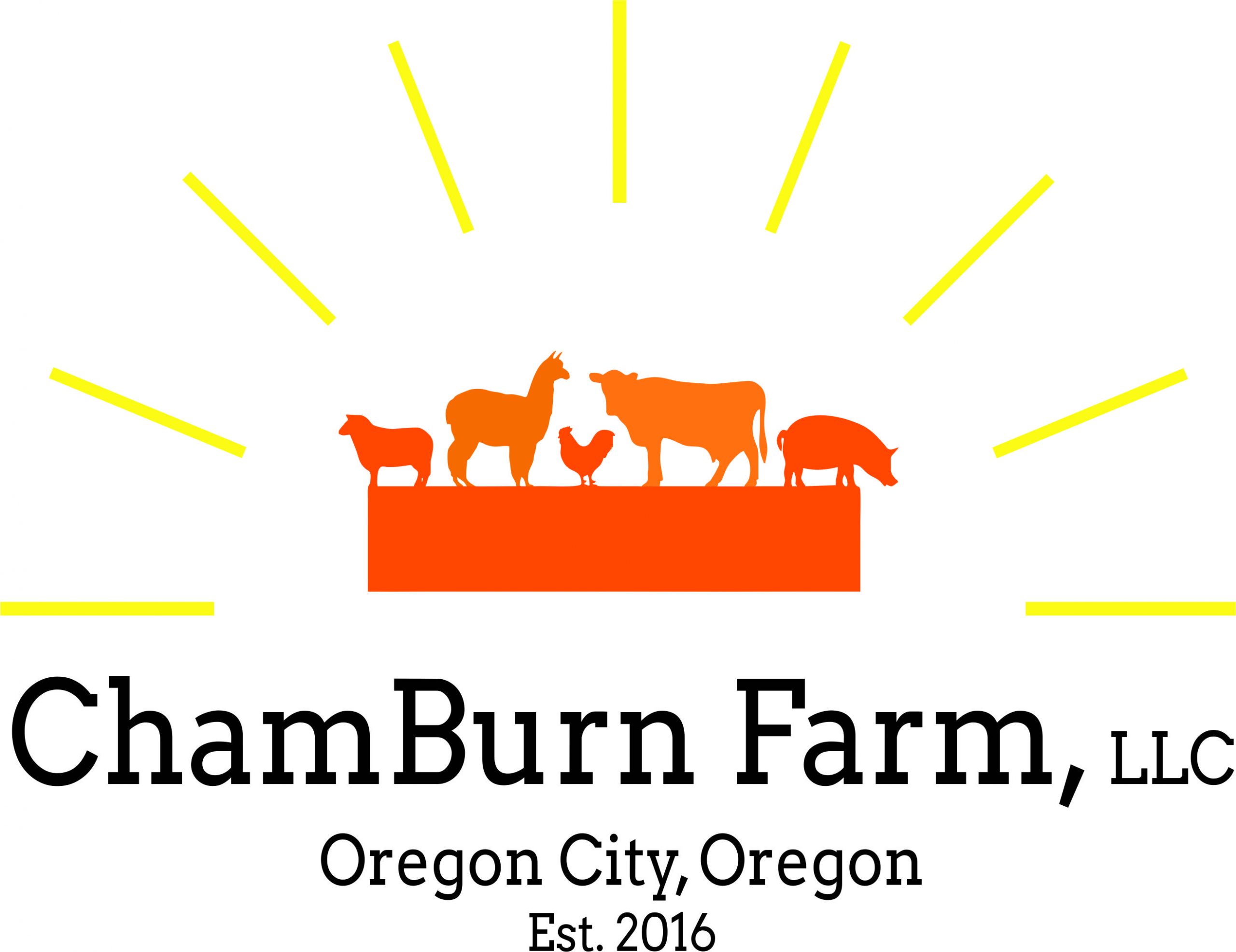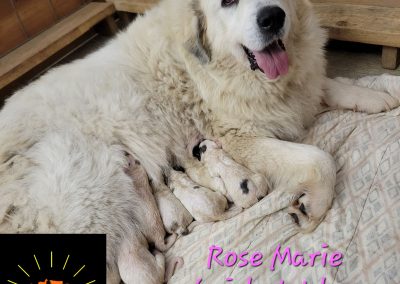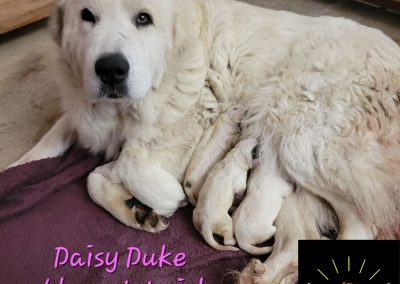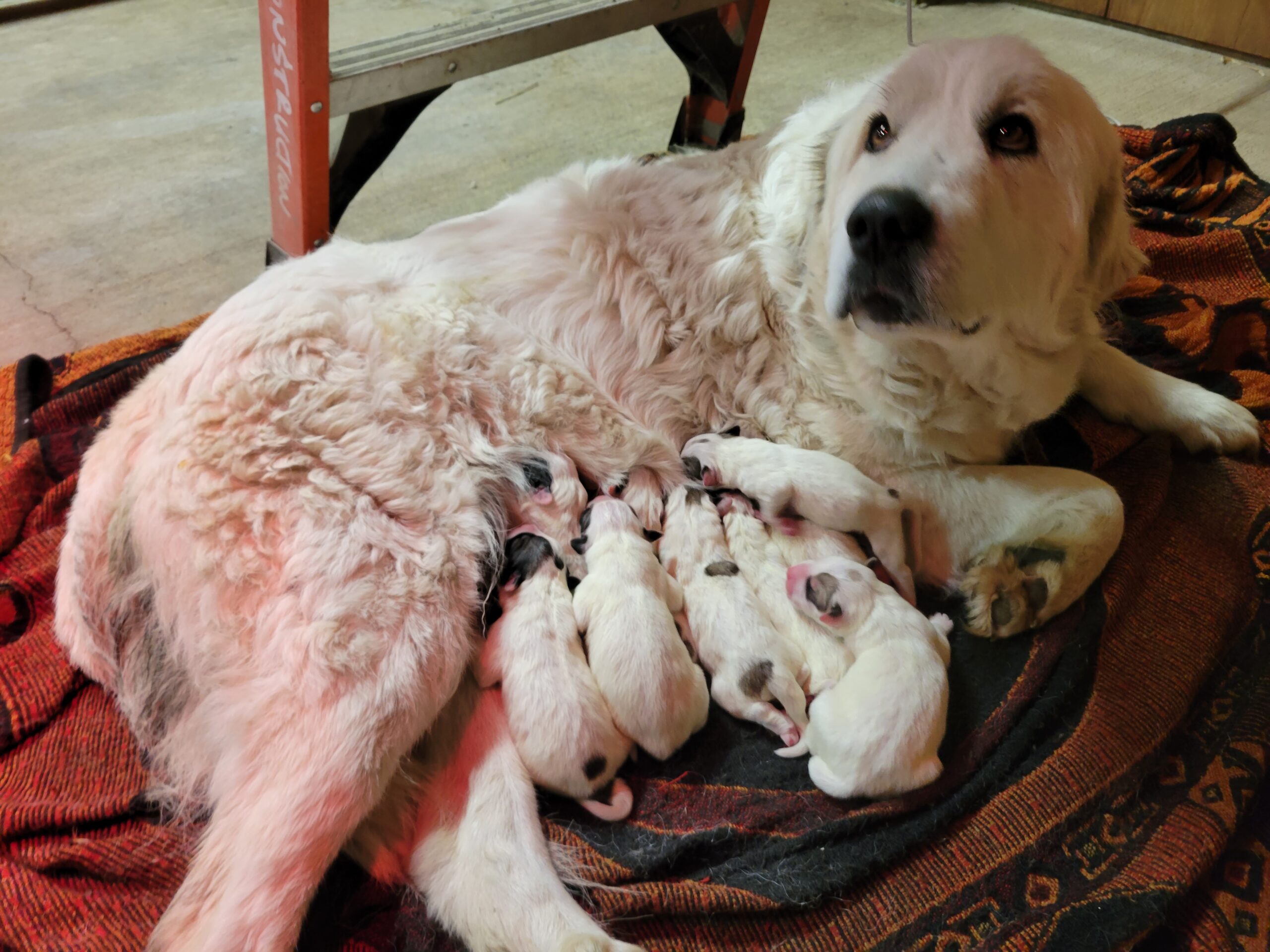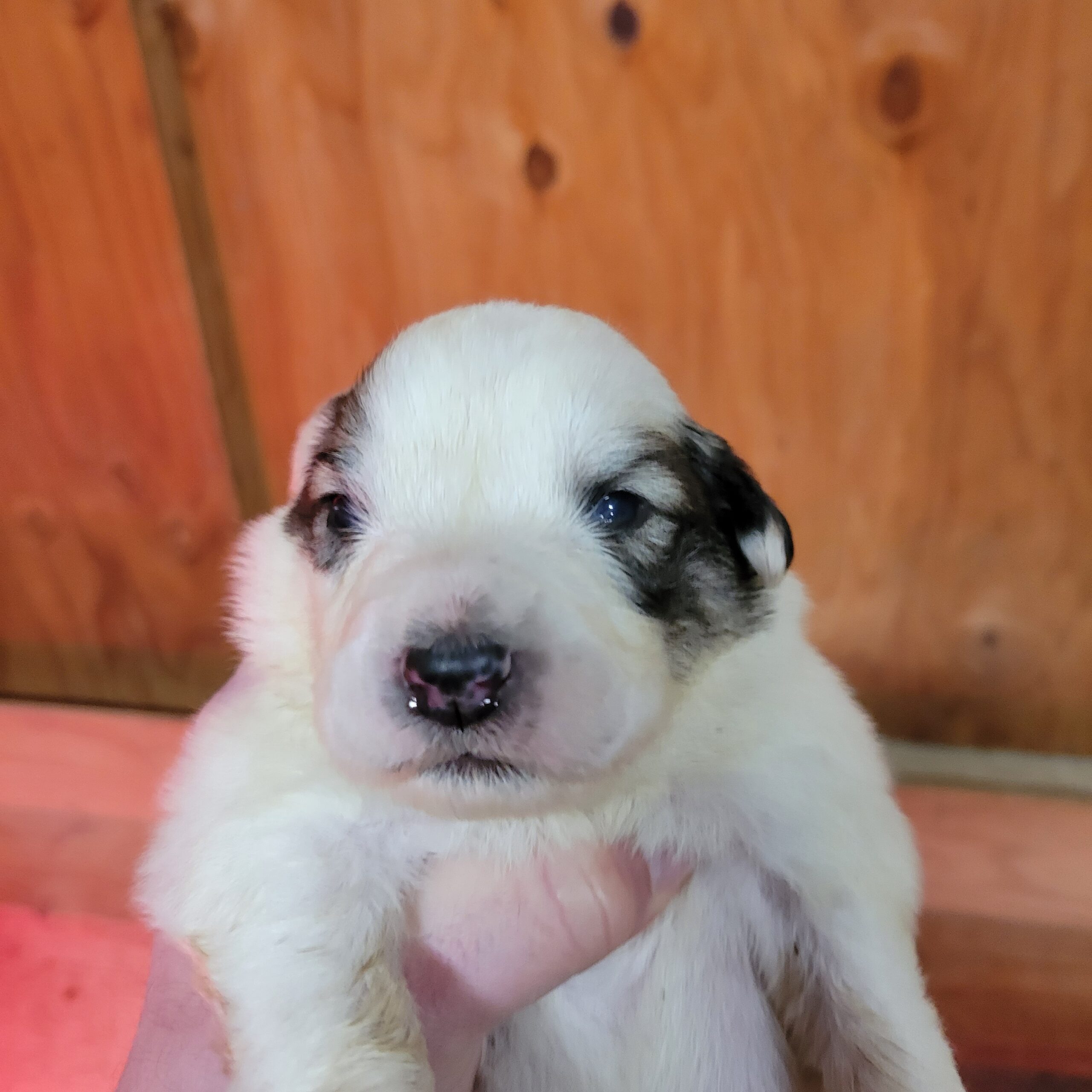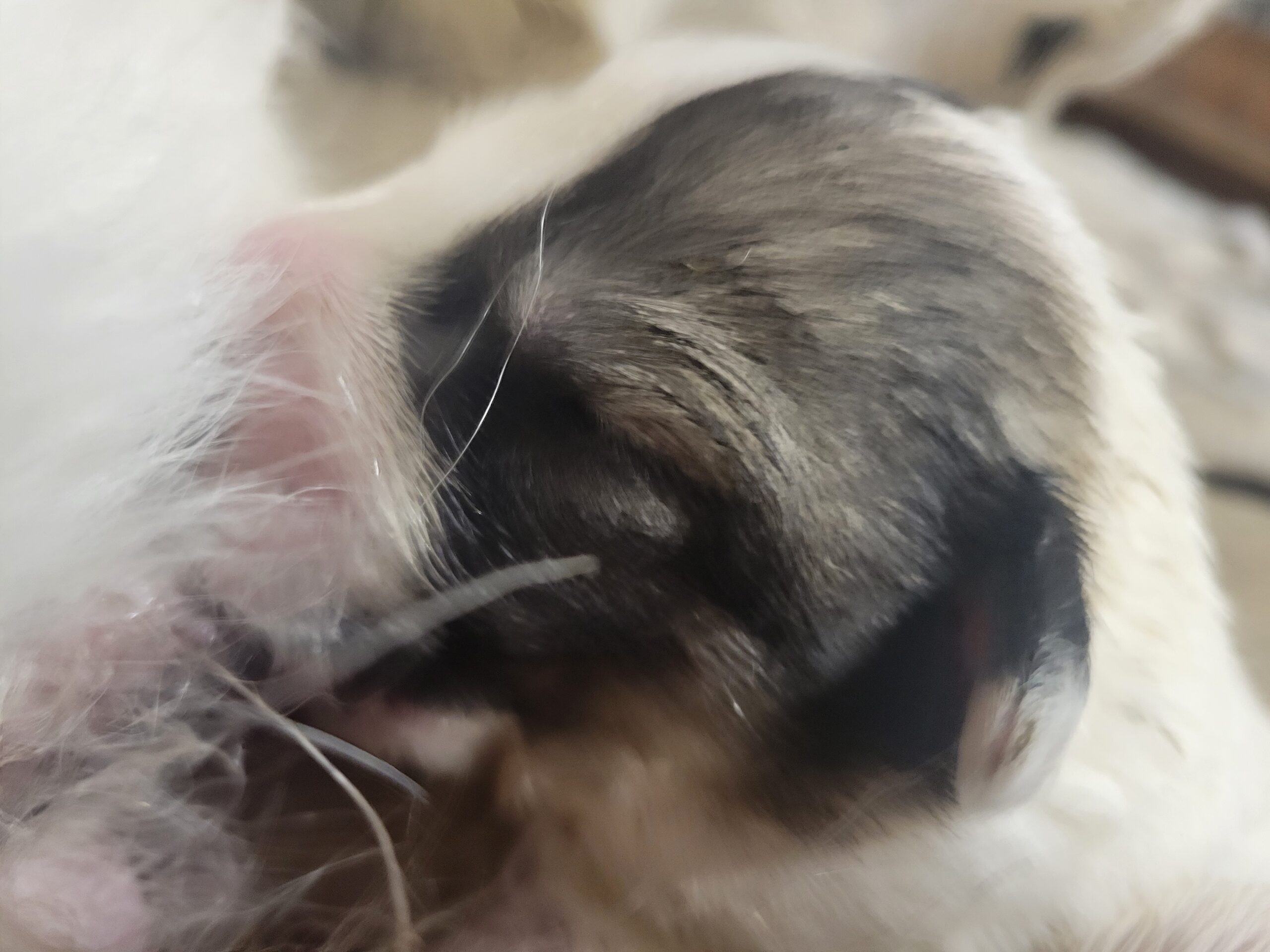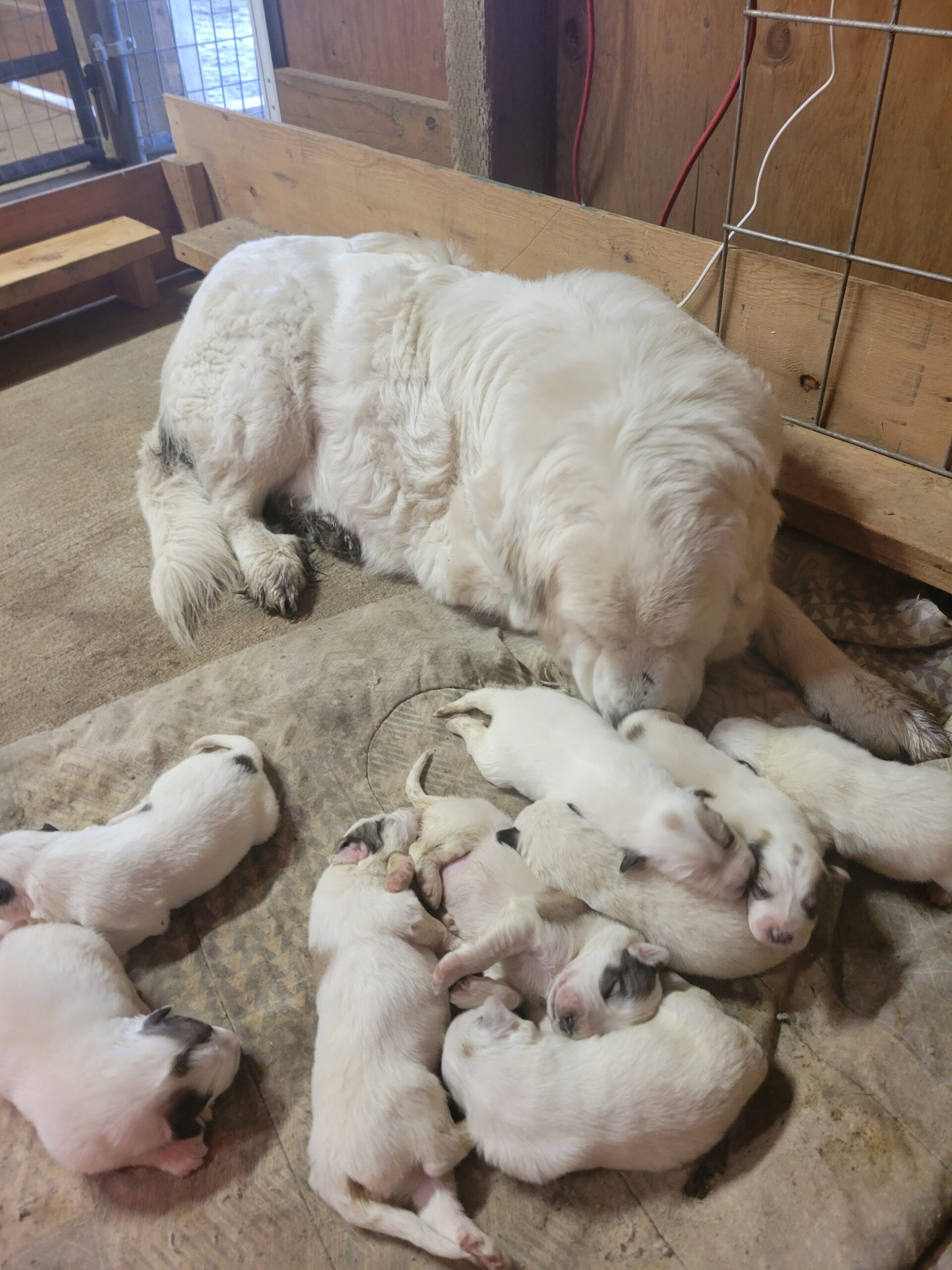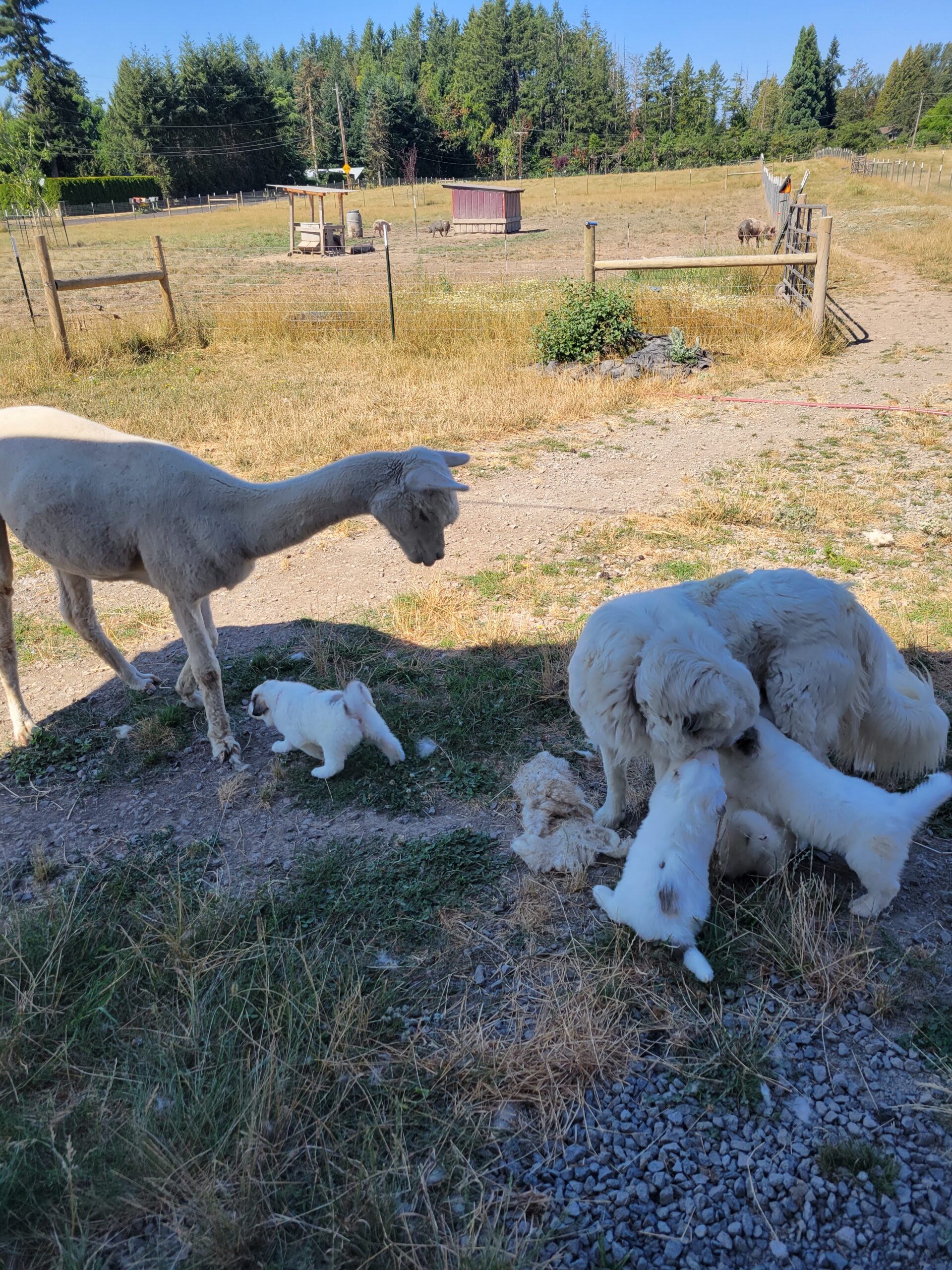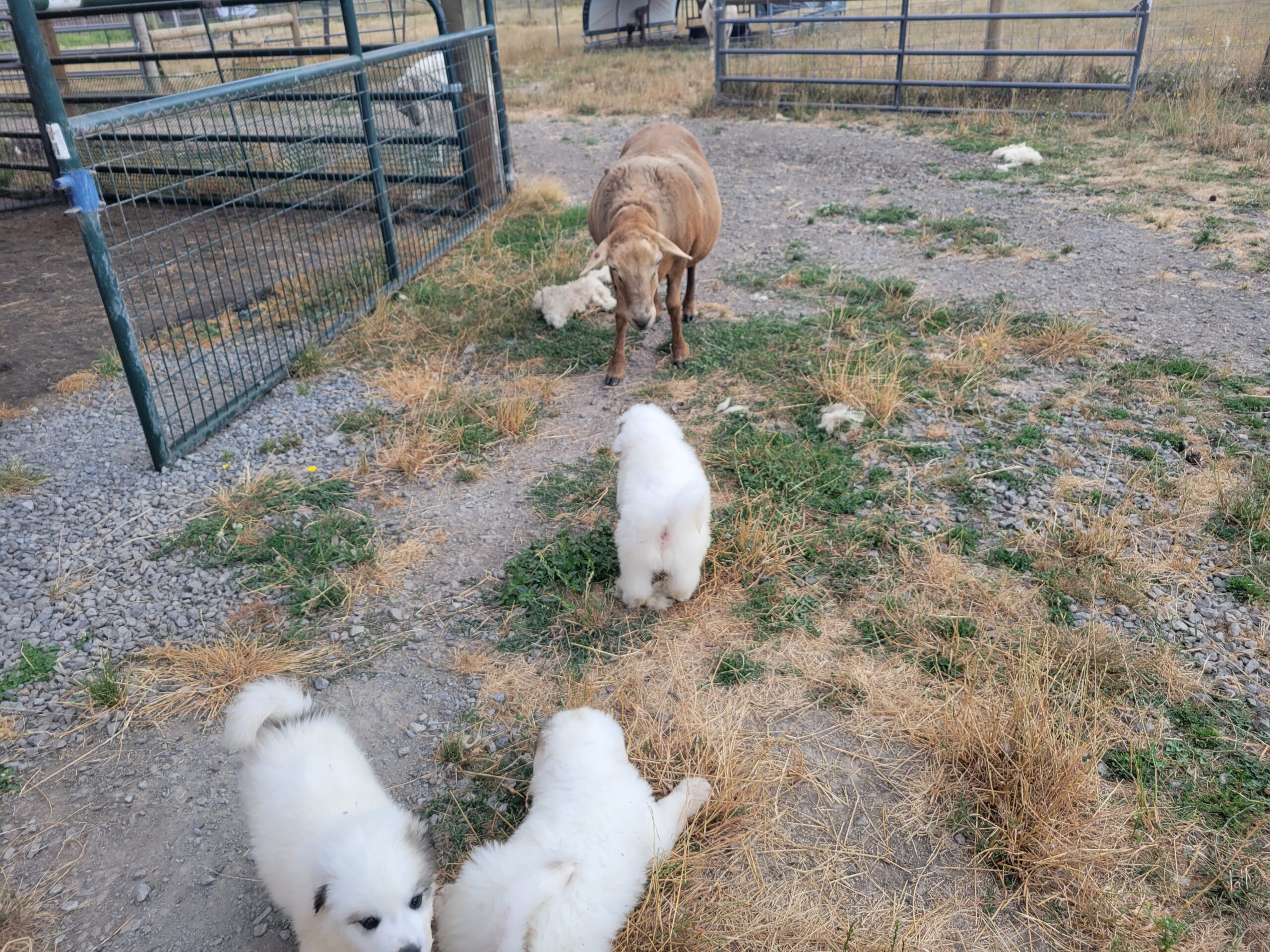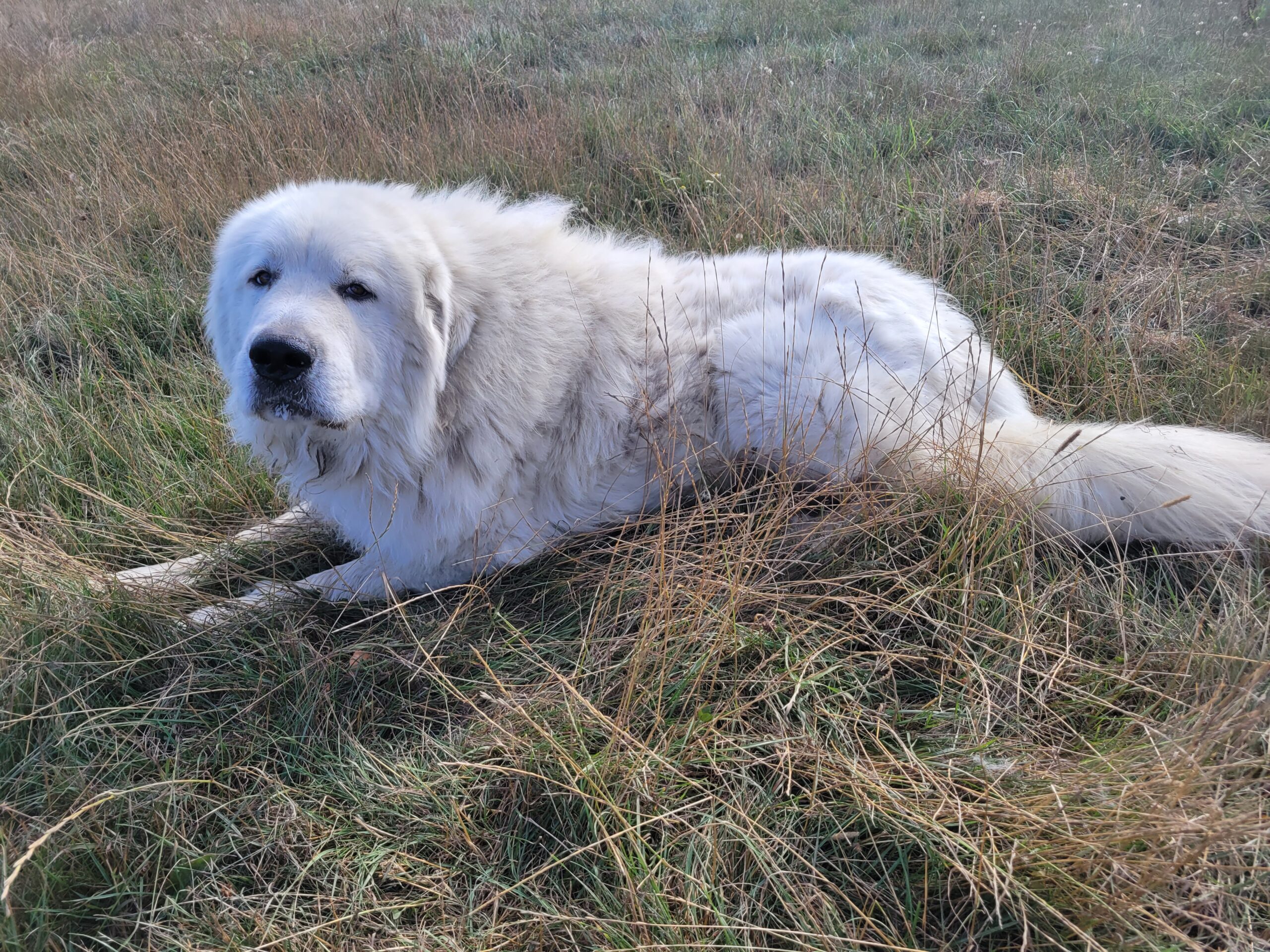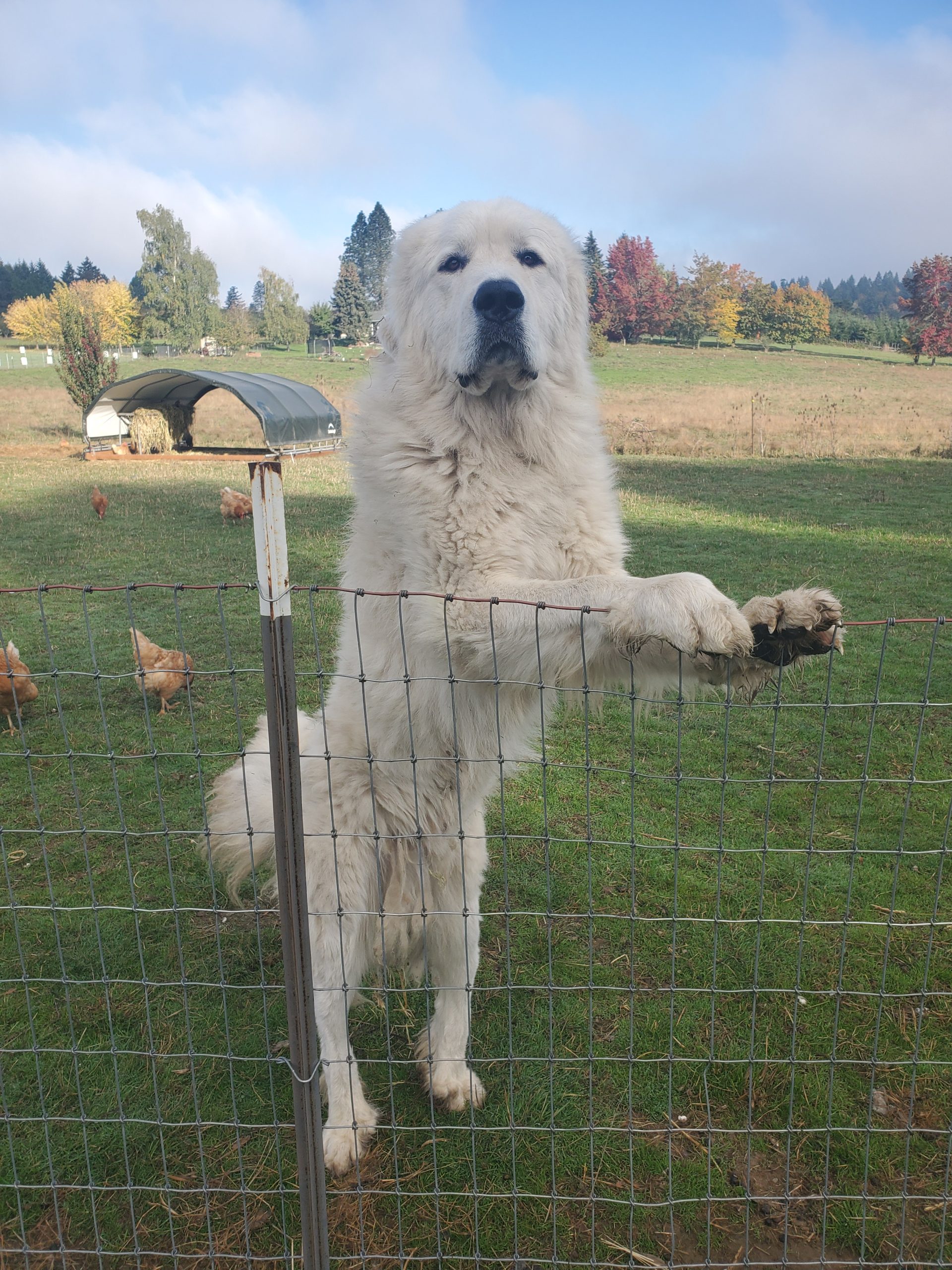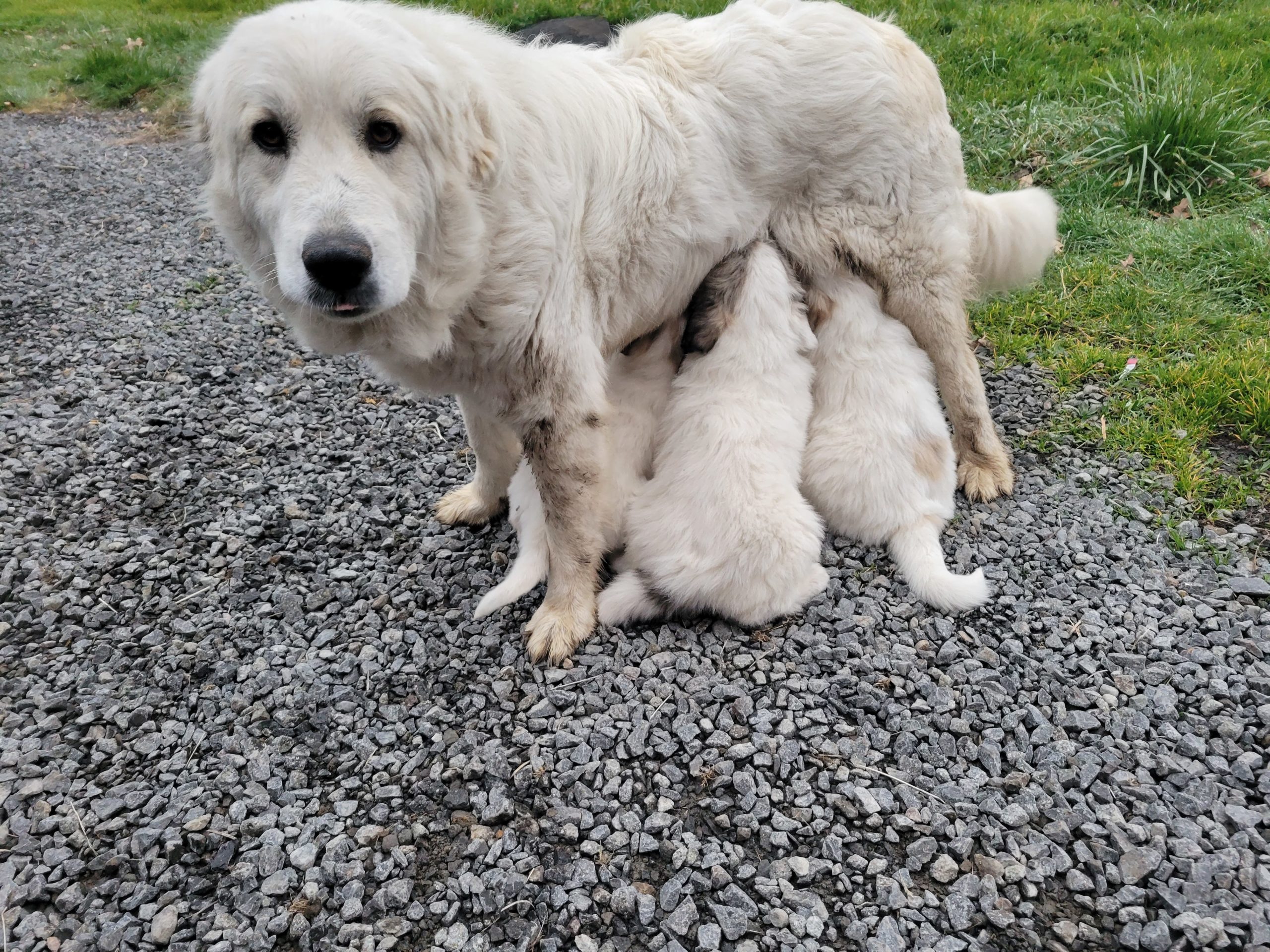Contact us to Inquire about current Puppies or to be placed on a Waiting List for a Future Litter!
GREAT PYRENEES LIVESTOCK GUARDIAN DOGS
It should come as no surprise that we keep our Great Pyrenees dogs as livestock guardians. They’re territorial by nature, which makes them ideal for this purpose.
Generally, their working roles are broken into two categories:
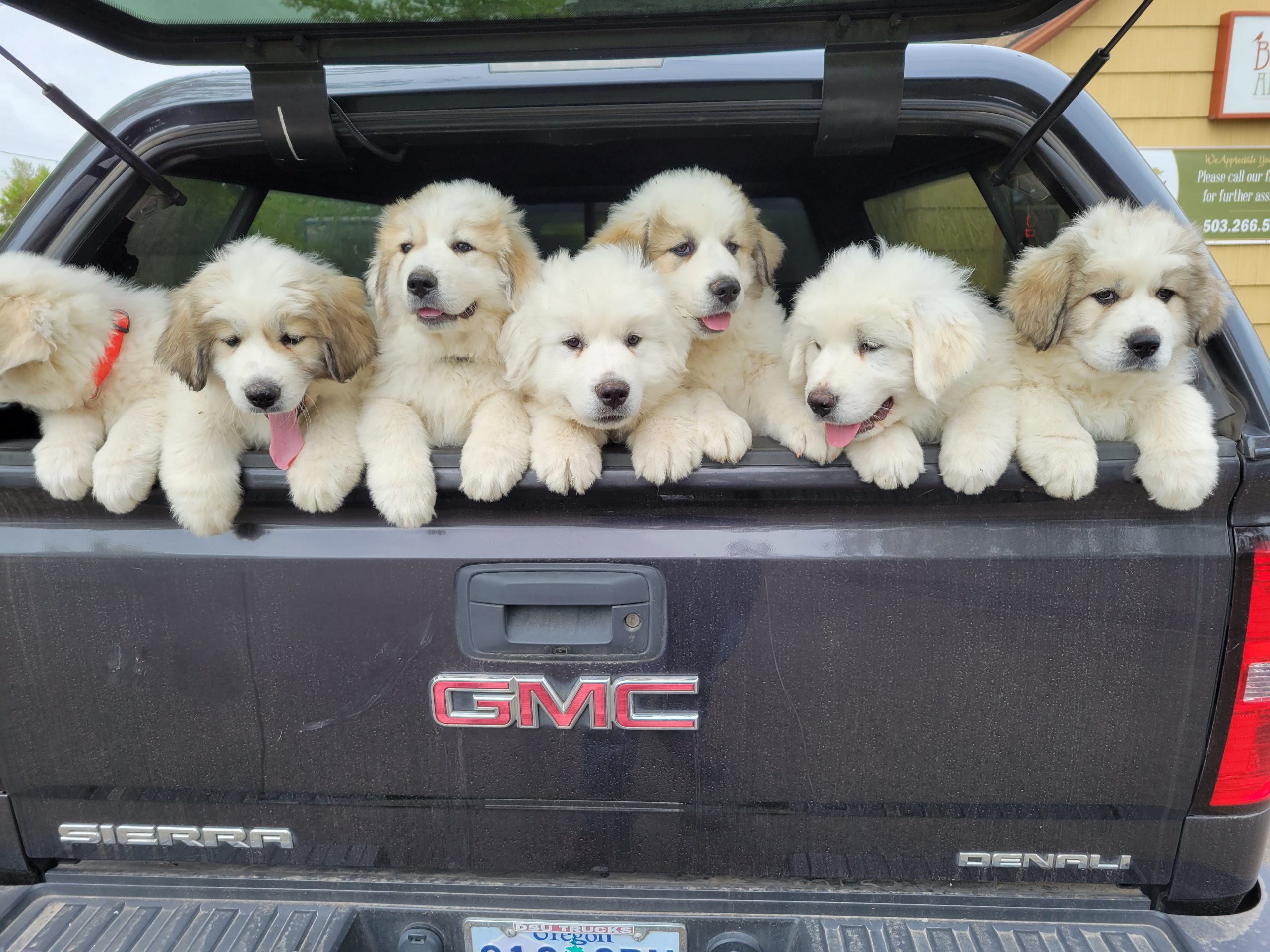
RANCH OR FARM DOGS
A ranch dog is part worker, part pet. It lives on the farm in close proximity to the farmhouse, guarding it and livestock kept nearby. The Great Pyrenees is perfect for this because, although territorial, they’re also incredibly friendly towards people they know.
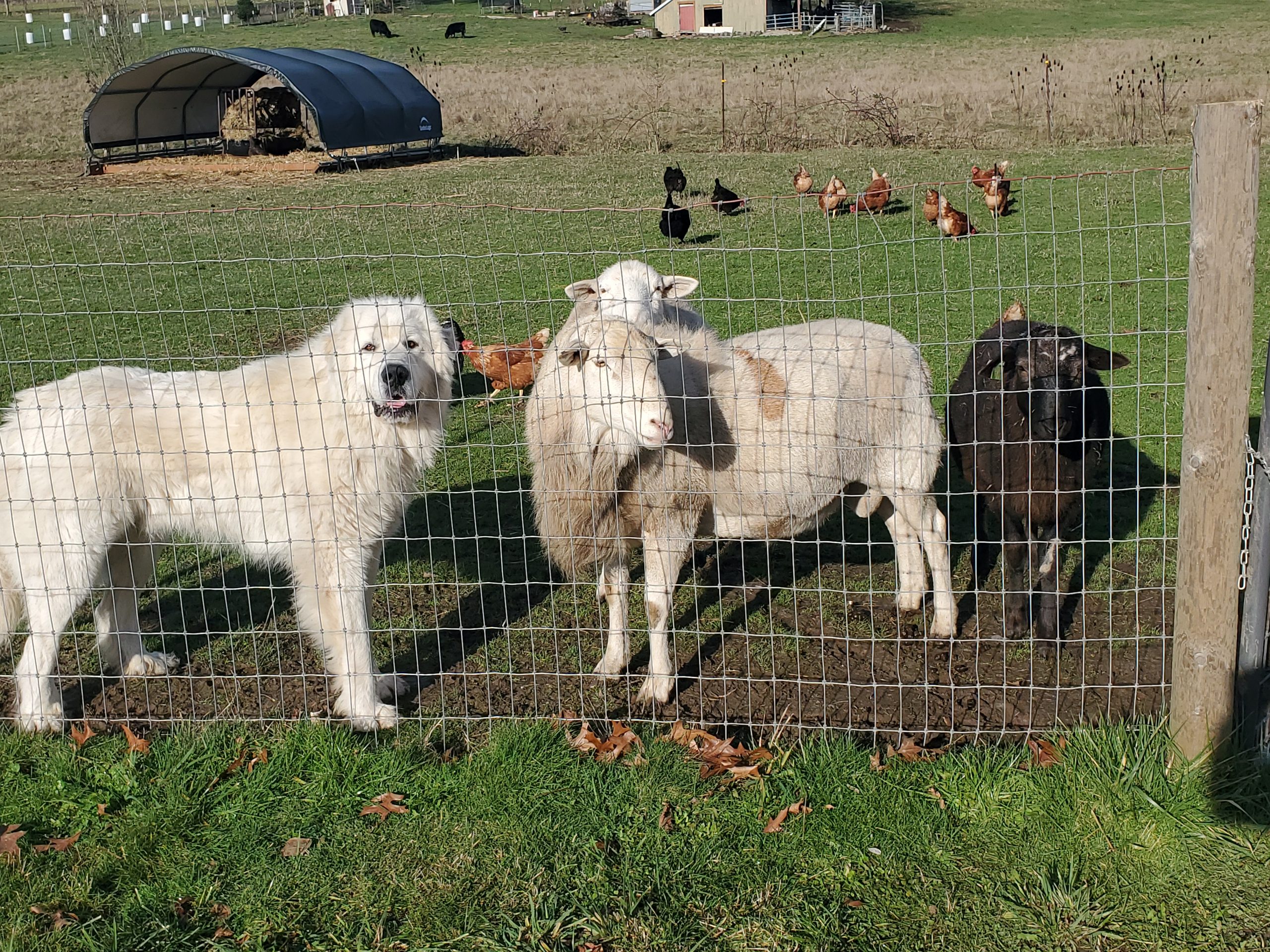
LIVESTOCK GUARDIAN DOGS
By their very nature, livestock guardian dogs aren’t considered pets. They generally work away from the farmhouse and live full-time with the livestock they guard. In some cases, Great Pyrenees dogs have also been known to protect their neighbor’s livestock too!
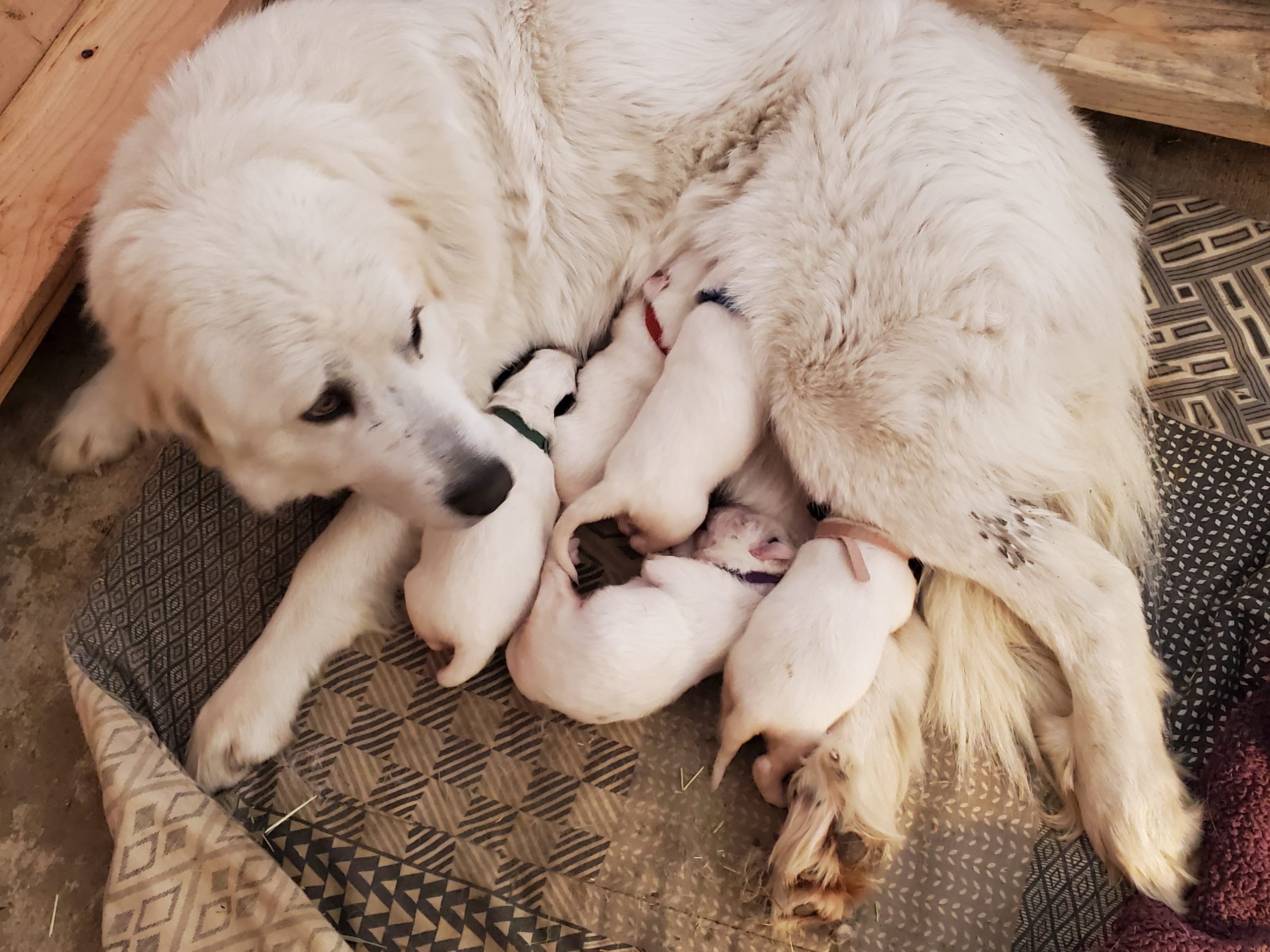
GREAT PYRENEES AS FAMILY PETS
This isn’t to say that Great Pyrenees don’t make great family pets. They do, but there are some considerations. Great Pyrenees dogs are typically friendly towards children and get on well with all members of the family. However, due to their territorial nature, they can be excessively loud as they have been bred to make noise in order to scare off potential threats.
Thankfully, we work with a Canine Behavioral Specialist who uses an established Puppy Temperament Evaluation and Working Dog Evaluation to determine which of our newborn Great Pyrenees puppies are better suited as family pets, working dogs, or maybe a bit of both!
HOMING NEWBORN GREAT PYRENEES PUPPIES
As with other reputable breeders, we strive to find the best home for our newborn Great Pyrenees puppies. The puppies remain on our farm until they’re around 10 weeks old, which gives us plenty of time to ensure they are well developed and ready for new homes.
In those ten weeks, we prepare our puppies for their future by:
Working with a Canine Behavioral Specialist to ensure puppies are matched with the right homes and environments.
Meeting with a veterinarian for vaccinations and deworming. Each puppy goes home with an individual health report.
Using a prestigious Puppy Culture Program to ensure each dog is physically and mentally prepared to leave the farm.
Completing all necessary paperwork, including registering the puppy with the AKC if requested.
We’re diligent puppy breeders, which is why all this is necessary. ChamBurn Farm takes pride in the puppies we breed and ensure they go to homes best suited for their temperament and needs.
GREAT PYRENEES FREQUENTLY ASKED QUESTIONS
How big do Great Pyrenees get?
Females can typically range anywhere from 85-120 pounds. Males range between 100-130+ pounds. Our adult females have been around 90 pounds and our adult males 100-120 pounds.
How much will my Puppy weigh when it’s time to come home?
At 10-weeks of age our puppies usually weigh 20-25 lbs. They’ll need a medium size dog collar.
What type of fencing do I need?
You will need solid fencing with no gaps or areas where the dogs can escape. Our dogs are contained inside a standard 48-inch tall woven wire pasture fence (4”x4” grid commonly referred to as sheep and goat fencing). For city lots, consider 6-ft tall privacy fencing. In-ground wire type invisible fencing usually does not work due to the dog’s thick neck fur. A full grown Pyr can fit through an 8-inch wide opening. Solomon and Daisy have proven it!
Do I need to Obedience Train my dog?
It is always a good idea to obedience train a family pet. Pyrs tend to be stubborn and most of what happens is on their terms. Training will help strengthen the bond between you and the dog so you can be the boss…some of the time! Working dogs may not need formal training since they will be outdoors full time. They will learn basic commands over time.
Can my Pyr be crate trained?
We know people who have successfully crate-trained their family pets. You will need an extra-large crate capable of holding a 100-pound dog.
Can the dog live outdoors full time?
The breed was developed in the Pyrenees Mountains between France and Spain where elevations exceed 10,000 feet above sea level. Their triple layered coat provides them with outstanding protection against both hot and cold temperatures by trapping air between the outside environment and their skin. They were bred to protect sheep herds in the mountains and are perfect for full time outdoor living in extreme icy or hot conditions. Always provide shade and water so they can keep cool in Summer. NEVER SHAVE YOUR PYR!
Does my dog need a doghouse?
NO! Having some sort of shelter is important, but it doesn’t need to be elaborate. Just something to keep the rain off of them if they so choose to seek shelter. Since these dogs are guardians by nature, they are predisposed to want to “keep watch” 24/7. Being confined in a doghouse goes against that instinct.
Does my dog need a bed?
NO! We gave our dogs a bed and it ended up in a corner where the dogs don’t sleep. They are perfectly fine nestling in a hay feeder, out in the pasture, or inside a barn stall.
Will my dog eat my homework?
YES! Dogs use their mouths for eating, tearing up things, and carrying things around. Be sure to secure anything important from your dog; especially while it’s a puppy and learning what is right and wrong behavior.
Will my dog bark a lot?
Possibly! Great Pyrenees use their bark as their first line of defense when guarding their domain. They are trying to alert what/whomever has caught their attention that they’ve been detected. They have a few distinct barks; 1) “I heard/see something and I want you to know I heard/see it”, 2) “I see you and I really don’t like you being here”, and 3) “I see you and you better high tail it out of here”!
GETTING IN TOUCH
Interested in our newborn Great Pyrenees puppies?
Get in touch so we can discuss next steps and notify you of our next litter.
